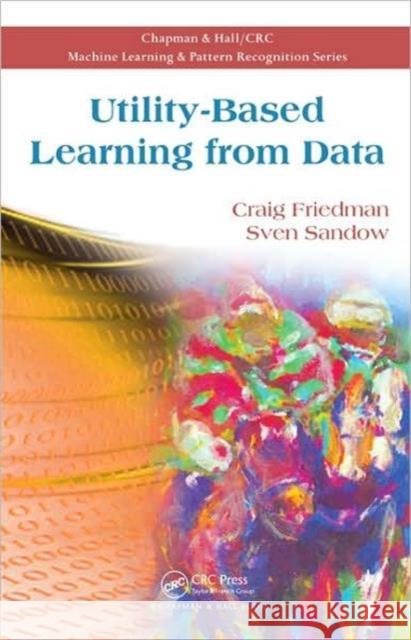Utility-Based Learning from Data » książka
Utility-Based Learning from Data
ISBN-13: 9781584886228 / Angielski / Twarda / 2010 / 417 str.
Utility-Based Learning from Data
ISBN-13: 9781584886228 / Angielski / Twarda / 2010 / 417 str.
(netto: 534,23 VAT: 5%)
Najniższa cena z 30 dni: 507,98
ok. 16-18 dni roboczych.
Darmowa dostawa!
Utility-Based Learning from Data provides a pedagogical, self-contained discussion of probability estimation methods via a coherent approach from the viewpoint of a decision maker who acts in an uncertain environment. This approach is motivated by the idea that probabilistic models are usually not learned for their own sake; rather, they are used to make decisions. Specifically, the authors adopt the point of view of a decision maker who (i) operates in an uncertain environment where the consequences of every possible outcome are explicitly monetized,
(ii) bases his decisions on a probabilistic model, and
(iii) builds and assesses his models accordingly. These assumptions are naturally expressed in the language of utility theory, which is well known from finance and decision theory. By taking this point of view, the book sheds light on and generalizes some popular statistical learning approaches, connecting ideas from information theory, statistics, and finance. It strikes a balance between rigor and intuition, conveying the main ideas to as wide an audience as possible.
Statistical learning, in particular, probabilistic model learning, has become increasingly important in recent years. Probabilistic models, however, are not usually studied for their own sake but for decision-making purposes. Written by authorities in the field, Decision-Theoretic Methods for Learning Probabilistic Models approaches probabilistic models from the point of view of decision makers who operate in uncertain environments, base their decisions on a probabilistic model, and build and assess this model accordingly. This book surveys popular approaches and presents a review of utility theory. It also examines applications to finance, marketing, bioinformatics, and other fields.











